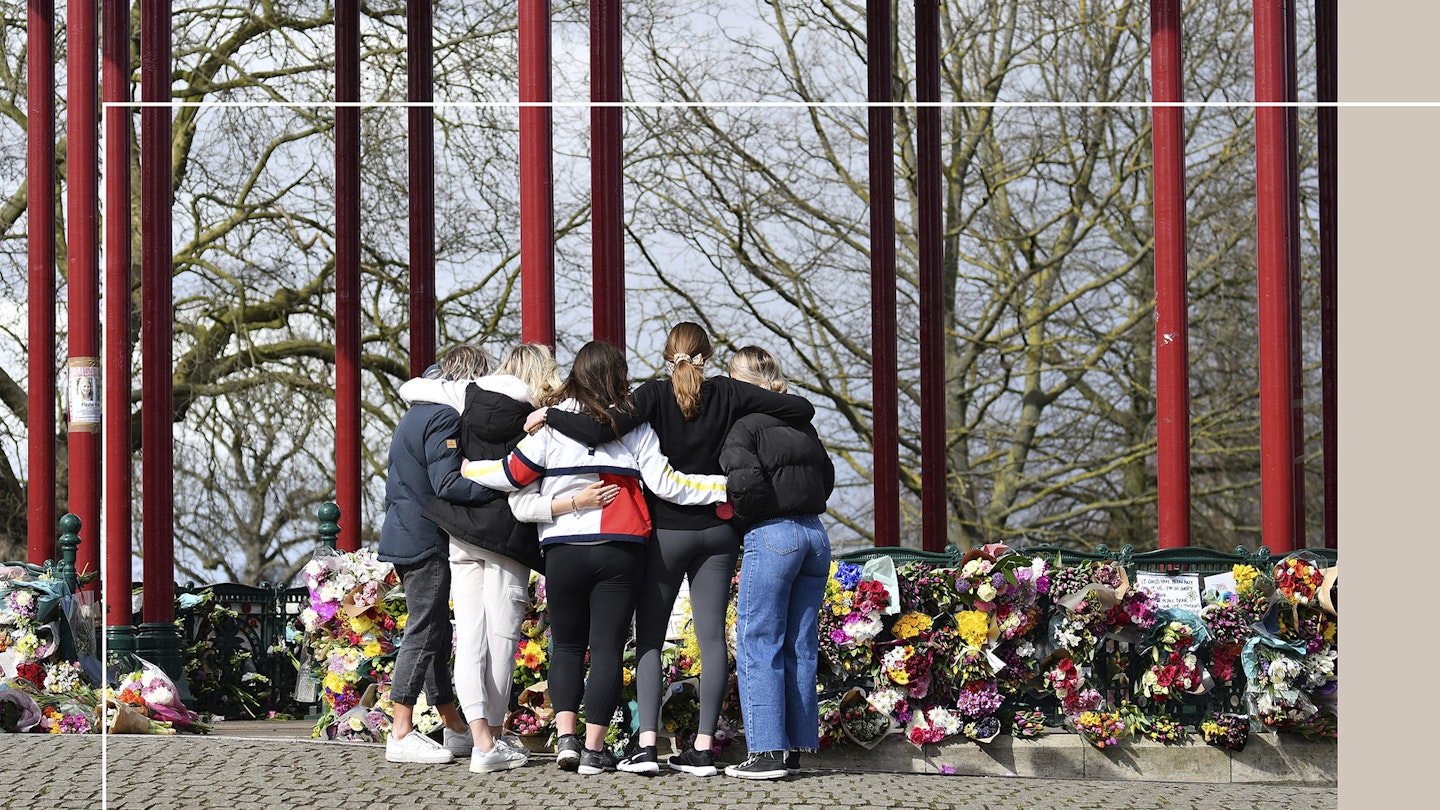She followed all the rules drummed into us from girlhood. Sarah Everard walked a well-lit main road at only 9pm, in a woolly hat, sensible boots and ‘unprovocative’ clothes, calling her partner on the way. Yet still she was abducted, handcuffed, raped then killed, her body burned.
But Sarah, 33, will be remembered. Not just for the qualities described by her mother – strong principles, kindness and humour – but because she awoke a whole generation to male violence and the state’s failure to act. The Duchess of Cambridge, laying flowers picked in her Kensington Palace garden, recalled how before she was royal she too walked home alone. Sarah could have been any of us.
Her disappearance led women to voice our after-dark anxieties. The short cuts we avoid, our unease when a man walks behind us, how we clutch our keys like a claw. Our menfolk were often surprised to hear how differently we perceive public spaces, how we’re always wary and often afraid.
Then, when Sarah’s body was discovered, and the murder suspect was Wayne Couzens, a police officer, women’s horror turned to rage. Who can we trust if not the police? Yet instead of trying to reassure us, the Met treated us with disdain. During the search for Sarah they’d told women to stay home for our own safety. (Why not curfew men instead?) Now they told us to stay home to commemorate Sarah’s death.
But women were too angry to light candles quietly and several thousand risked Covid fines to attend a vigil on Clapham Common one freezing March night. I was there at the front, amid sad, silent mourners, when an army of officers poured out of vans and crushed tea-lights and M&S bouquets beneath their boots as they encircled the bandstand. They forcefully arrested protesters just for making speeches. A woman had been killed by a police officer – so the police turned on women! Female rage burned even brighter.
Now discussion expanded to other murdered women. That Sarah was white, middle class and photogenic had undoubtedly drawn press focus to her case. By coincidence, just as her remains were discovered, Jess Phillips MP read out the annual femicide index, kept by campaigner Karen Ingala Smith, of all women killed by men. Five more, plus a little girl, since Sarah.
Usually, such deaths are background noise: about 150 women a year, one every three days. But Sarah’s case turned up the volume. It led to questions about two Black sisters, Bibaa Henry and Nicole Smallman, stabbed after an outdoor birthday party in June. Why did they get less attention, especially after police posed for selfies next to their bodies, which they then shared on WhatsApp groups with the caption ‘dead birds’?
Once you’re attuned to murdered women, you notice every one. Like Ruth Williams, strangled by her husband of 44 years because he was ‘upset about lockdown’. Or Sophie Moss, strangled by a drunk who enjoyed choking porn. (Both killers got just five years.) Or Julia James, bludgeoned while walking her dog.
Met commissioner Cressida Dick said that Couzens was just a ‘bad ’un’. But Sarah’s death made women ask if misogyny is endemic in the police. How could Couzens, known by colleagues to use prostituted women and violent porn, be made a firearms officer?
Why do police not prosecute minor sex offences, which are often precursors to serious ones? (Couzens had exposed himself just before abducting Sarah.) Why are women always blamed, even for our own deaths? North Yorkshire police commissioner Philip Allott said Sarah should never have got into Couzens’ car, as if alone on that dark road she had any choice. (Allott resigned.)
There are two legacies of Sarah’s tragic death. The first is a troubling rise in anxiety among women about their physical safety. A group called Girls Night In organised a boycott of clubs and pubs in response to drink spiking. It raised an important issue, but it would be sad if women put limits on their lives because of fear.
But the tragedy also created a new generation of feminist activists, who politicians can no longer ignore. As the year ends, the Government has vowed to address its record low rape conviction rate of 1,100 in 57,000 reported cases. It has finally made violence against women a ‘strategic policing requirement’ equal, in terms of funding and manpower, to terrorism.
Will it deliver? Who knows. But thanks to Sarah Everard, more women will strive for the femicide list to be shorter next year.
We're Not Panicking, We're Reacting. We're Not Hysterical, We're Angry
This Powerful Film About Women Facing Street Harassment Is A Must-Watch
